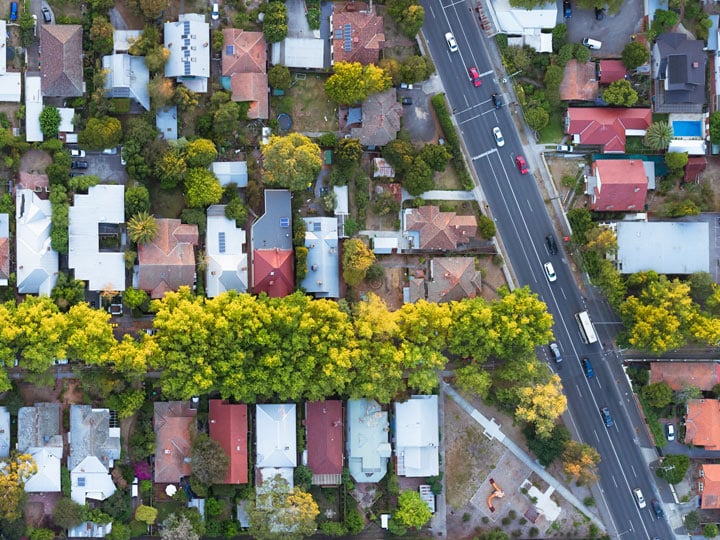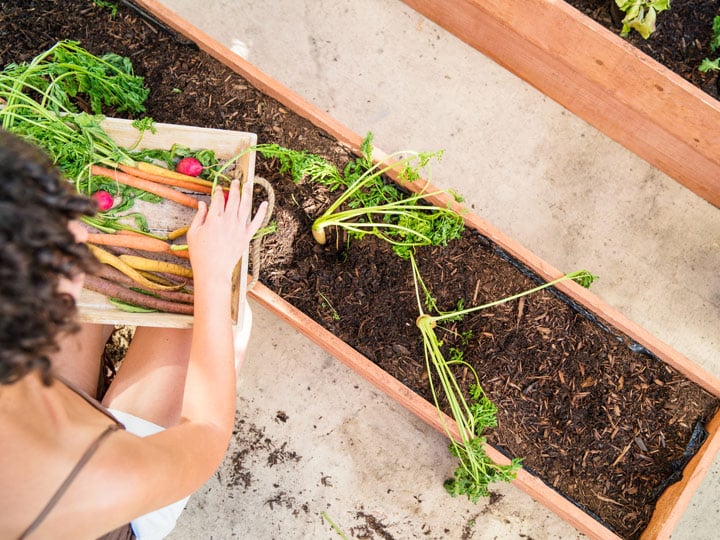7 Apps and Platforms to Help Build Community in Your City Neighborhood
October 13, 2017
It’s a curious modern paradox: Even while our cities are getting more and more crowded, the majority of urbanites still barely know their neighbors.
If you ask us, it’s time that changed—and not just because fostering relationships with the folks next door means you have someone to pick up your packages when you’re out of town. Instead, building strong and thriving urban communities is what city living is all about. From hyperlocal news outlets to neighborhood-wide social networks, there are more ways than ever to connect with the people around you. Let’s begin with these essential apps and platforms—and by simply saying hello next time you bump into your neighbors (we promise it’s not that scary.)
Learn more about Zipcar for Business.
1. NEXTDOOR: Forget the maximalist social networks like Facebook or Twitter—for real community building, give
Nextdoor a download. The app, which is pitched as "a private social network for your neighborhood," narrows its scope to a block-by-block radius, offering a secure environment for neighbors to communicate about everything from local events and lost dogs to ongoing construction projects. Keep tabs on your neighborhood's goings-on—and come away with new connections and even budding friendships.
Image courtesy of Nextdoor.
2. IOBY: Connecting with your neighbors is only one part of urban community building. When you want to unite residents—and sponsor innovative new projects and initiatives that'll change your hood for the better—there's
ioby. The empowering crowdfunding platform mobilizes community members by giving them the tools they need to become citizen leaders, whether they want to introduce local mural projects or give area transit options an ambitious overhaul.
Image courtesy of RZOM Wall Mural/Ioby.
3. OLIO: Nothing brings people together like food, which is why OLIO is the perfect tool for delicious urban community building. The app invites individuals to offer up surplus food to those around them, from excess CSA veggies to extra portions from your latest pasta dinner. Nosh for free, say hello to your neighbors—and perhaps even walk away with future dinner party plans.
Image courtesy of Annabel Staff.
4. FREECYLE: Free stuff—it's been bringing neighbors together since time immemorial. But swag is only one of the benefits of
Freecycle. A nifty international platform that connects those with extra food, housewares, supplies, and other odds and ends with those who could really use 'em, Freecycle helps foster connections amongst neighbors, emphasizes sustainability, and cuts down on waste. Nothing not to like, in other words.
5. PATCH: In a time when many media platforms are struggling to connect with audiences, hyperlocal
Patch is
on the up. A network of hundreds of individual news sites that are minutely targeted to local interests, Patch is indispensable for anyone interested in keeping up-to-date with the neighborhood scoop. Come for the local updates and job listings, and stay for the event calendars and group discussion boards.
6. EVERYBLOCK: Another essential platform for all things hyperlocal is
EveryBlock. Via a personalized homepage that updates throughout the day, you can see up-to-the-minute info on the parts of the city you frequent most. The site compiles messages posted by neighbors, media mentions, civic information, and even area restaurant reviews to always keep you on top of local happenings. Five stars on Yelp for that new sandwich place around the corner? First check it out, then let your neighbors know just how good the Cubano is.
7. IRL COMMUNITY BUILDING: Beyond the digital apps and platforms, no effort at urban community building is complete without some real-life interactions. For more information about how to meet neighbors, improve your local scenery, and otherwise make your neighborhood a pleasant place to be, peep
Curbed's excellent list of suggestions. From starting your own community garden to creating interactive art projects, city living is best when it's a group endeavor.
1. NEXTDOOR: Forget the maximalist social networks like Facebook or Twitter—for real community building, give
Nextdoor a download. The app, which is pitched as "a private social network for your neighborhood," narrows its scope to a block-by-block radius, offering a secure environment for neighbors to communicate about everything from local events and lost dogs to ongoing construction projects. Keep tabs on your neighborhood's goings-on—and come away with new connections and even budding friendships.
Image courtesy of Nextdoor.
2. IOBY: Connecting with your neighbors is only one part of urban community building. When you want to unite residents—and sponsor innovative new projects and initiatives that'll change your hood for the better—there's
ioby. The empowering crowdfunding platform mobilizes community members by giving them the tools they need to become citizen leaders, whether they want to introduce local mural projects or give area transit options an ambitious overhaul.
Image courtesy of RZOM Wall Mural/Ioby.
3. OLIO: Nothing brings people together like food, which is why OLIO is the perfect tool for delicious urban community building. The app invites individuals to offer up surplus food to those around them, from excess CSA veggies to extra portions from your latest pasta dinner. Nosh for free, say hello to your neighbors—and perhaps even walk away with future dinner party plans.
Image courtesy of Annabel Staff.
4. FREECYLE: Free stuff—it's been bringing neighbors together since time immemorial. But swag is only one of the benefits of
Freecycle. A nifty international platform that connects those with extra food, housewares, supplies, and other odds and ends with those who could really use 'em, Freecycle helps foster connections amongst neighbors, emphasizes sustainability, and cuts down on waste. Nothing not to like, in other words.
5. PATCH: In a time when many media platforms are struggling to connect with audiences, hyperlocal
Patch is
on the up. A network of hundreds of individual news sites that are minutely targeted to local interests, Patch is indispensable for anyone interested in keeping up-to-date with the neighborhood scoop. Come for the local updates and job listings, and stay for the event calendars and group discussion boards.
6. EVERYBLOCK: Another essential platform for all things hyperlocal is
EveryBlock. Via a personalized homepage that updates throughout the day, you can see up-to-the-minute info on the parts of the city you frequent most. The site compiles messages posted by neighbors, media mentions, civic information, and even area restaurant reviews to always keep you on top of local happenings. Five stars on Yelp for that new sandwich place around the corner? First check it out, then let your neighbors know just how good the Cubano is.
7. IRL COMMUNITY BUILDING: Beyond the digital apps and platforms, no effort at urban community building is complete without some real-life interactions. For more information about how to meet neighbors, improve your local scenery, and otherwise make your neighborhood a pleasant place to be, peep
Curbed's excellent list of suggestions. From starting your own community garden to creating interactive art projects, city living is best when it's a group endeavor.

















